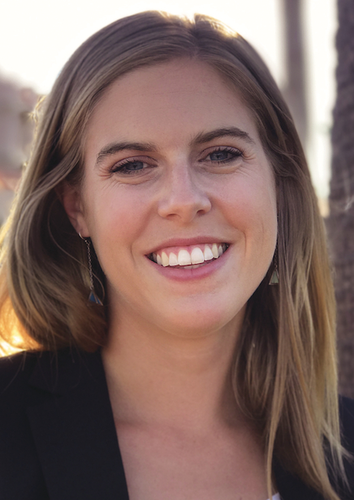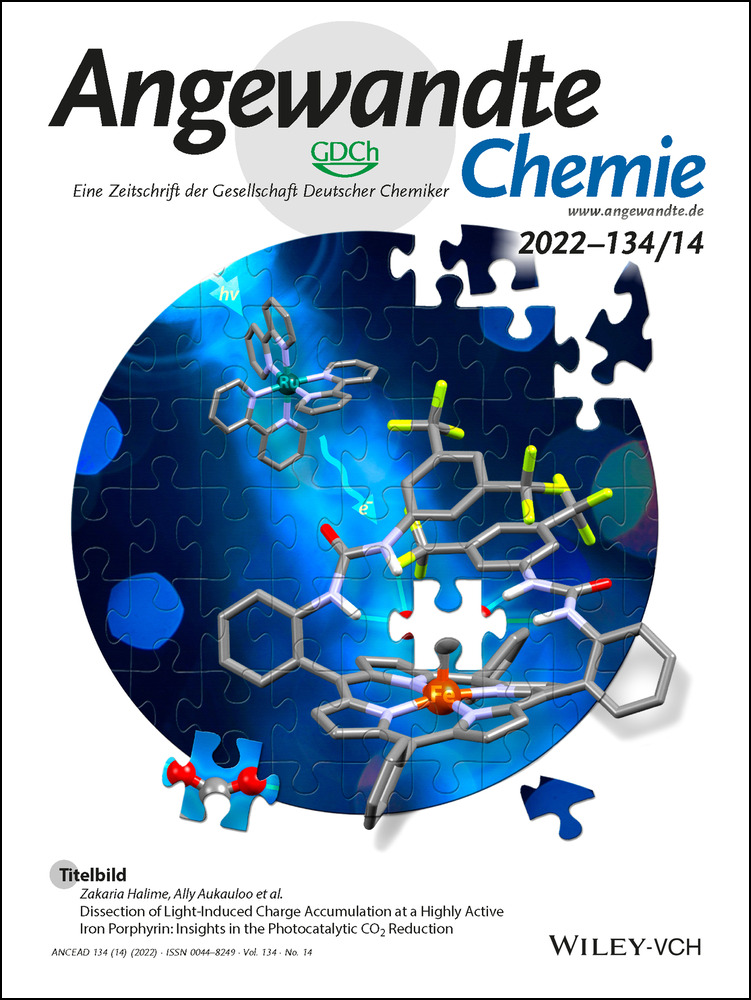Abigail Knight
Graphical Abstract
“Modern science needs to focus on bringing everyone to the table—interfacing with additional disciplines and incorporating diversity of all forms … A key experience in my education / career was learning to celebrate successes that could seem incremental and to navigate rejections …” Find out more about Abigail Knight in her Introducing … Profile
Abigail Knight
The author presented on this page has published her first article as a submitting corresponding author in Angewandte Chemie:
“Mapping the Morphological Landscape of Oligomeric Di-block Peptide-Polymer Amphiphiles”: B. P. Allen, Z. M. Wright, H. F. Taylor, Dr. T. J. Oweida, S. Kader-Pinky, E. F. Patteson, K. M. Bucci, C. A. Cox, A. S. Senthilvel, Y. G. Yingling, A. S. Knight, Angew. Chem. Int. Ed. 2022, doi.org/10.1002/anie.202115547; Angew. Chem. 2022, doi.org/10.1002/ange.202115547.
-
Position:
-
Assistant Professor, University of North Carolina, Chapel Hill
-
Homepage:
-
-
ORCID:
-
-
Education:
-
2010 Undergraduate university education,
University of North Carolina, Chapel Hill (USA)
2015 PhD with Matthew Francis,
University of California at Berkeley (USA)
2015–2018 Postdoc with Craig Hawker,
University of California at Santa Barbara (USA)
-
Research:
-
Bioinspired materials, chemical biology, polymer science, organic chemistry
-
Hobbies:
-
Knitting, rock climbing, spending time with friends and family
The biggest challenge facing my generation of scientists is the effect of the global pandemic on performing research and science communication.
I chose chemistry as a career because it provides an opportunity to understand fundamental science at the molecular level while simultaneously developing materials with the potential for significant societal impact.
The most important future applications of my research are solutions to global health and environmental challenges.
A key experience in my education/career was learning to celebrate successes that could seem incremental and to navigate rejections.
My favorite science outreach activities are those with young students!
Modern science needs to focus on bringing everyone to the table—interfacing with additional disciplines and incorporating diversity of all forms.
My group has fun by sharing baked goods, memes, and boxes of Cheez-Its, game nights, and outings to obtain bagels and frozen yogurt.
The most important factor in the choice of my current research topic is the exposure I've had to scientifically diverse research experiences throughout my career including research in polymer science and chemical biology in addition to a variety of industrial collaborations.
I celebrate success with champagne, insomnia cookies, and commemorative mugs.
My favorite example of chemistry/science in everyday life is the “prayer plant” in my office with leaves that roll and unroll throughout the day.
Behind the Science
This work characterizing the self-assembly profile of peptide–polymer amphiphiles builds on my postdoctoral research with Prof. Craig Hawker, but it has grown considerably over the past few years with major contributions from the team performing this work. Emily Beyer began by developing the synthetic and purification protocols that were expanded on by Ben Allen, Hailey Taylor, and Dr. Zoe Wright to create the modular platform described. The co-first authors became multi-disciplinary experts in amphiphile synthesis and photographing and quantifying their diverse assemblies with transmission electron microscopy with computational support from our collaborators at NC State University.





